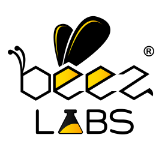
Sale Orders creation from Excise portal





Client portfolio

Our client is one of the largest liquor manufacturing companies in the United States of America, with a perfect blend of rich ancestral heritage and modern innovative flavor, working strenuously at finding the right balance between staying ahead of customers’ expectations and delivering quality experiences.
Overview – Origins
It is common practice in the liquor industry for the local suppliers/distributors of liquor brands in a region/country to log in the demands for products in a common excise portal as mandated by the law of that country. Some excise portals also have a direct online store for consumers, thereby the inventory of the products sold and the demands arising are constantly updated. When the liquor manufacturers need to supply the demands, their teams have to download the exact needs of each product maintained as Purchase Orders from this portal and create Sale Orders. The case study under examination deals with an automation solution simplifying this process of assessing the demand of any product at any given time and converting a Purchase Order to a Sale Order. The excise portal for Canada is the SAQ.
Problem statement – The Past
On a regular basis, whenever Sale Orders have to be created the process starts with identification of products under demand. For this, the user has to first select the new Purchase Orders from the SAQ portal. The values from this PO are extracted, like PO number, Ship to Address, etc. and then they are cross-matched against the rules maintained in Excel to fetch the other field data values necessary for creating a Sale Order. Next the user logs in to SAP and using the relevant transaction, creates a SO using these values and posts the same to SAP.
As this was done manually, as in the case of any other monotonous tedious activity, the probability of manual error is considerably high. Further, as the data is probably very real time, which means that the updates on the SAQ portal are going to be very frequent, it is a major overhead on the users performing this process on a regular basis.
Our Solution – The Present
After thorough analysis of the scenario, BeezLabs proposed a self-service automation solution that would directly login to SAQ portal and extract the new Purchase Orders from it. Then it would derive the necessary data from it and run a simulation on SAP for creating Sale Orders. On successful simulation, Sale Order is created and posted in SAP. All the while, keeping the concerned users in the loop via email communications.
This self-service would be a configurable one, meaning the users could configure the frequency at which this service should run. In cases of higher demand, this can be configured to run on a daily basis also. So, a business process that was proving to be mandating attention and effort has been converted into a touchless background process by Tulip.
Value delivered – The Outcome



Potential extended scope – The Future
This business process of analyzing demand from an excise portal and satisfying the demand is uniform across geographies in the liquor industry. The excise portal only varies across countries. Therefore, this automation solution can be easily extended for multiple excise portals, with a few customizations as specifically mandated by the legal requirements of the regions.

